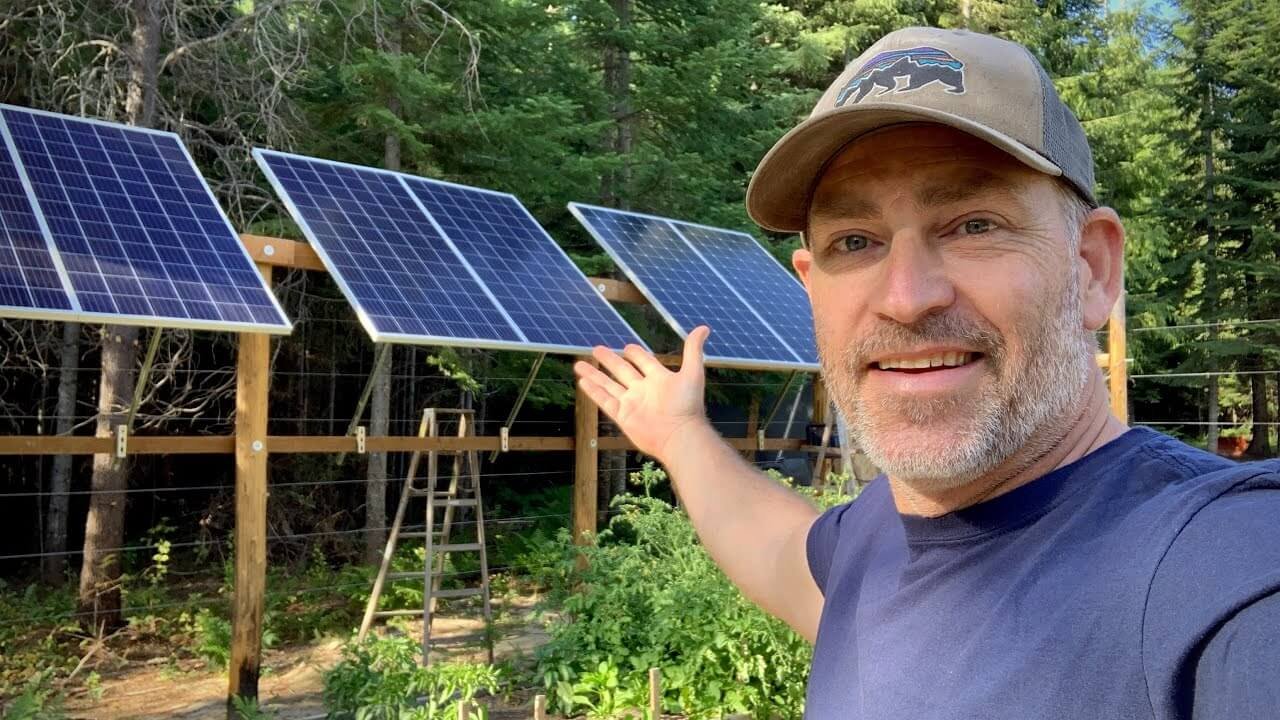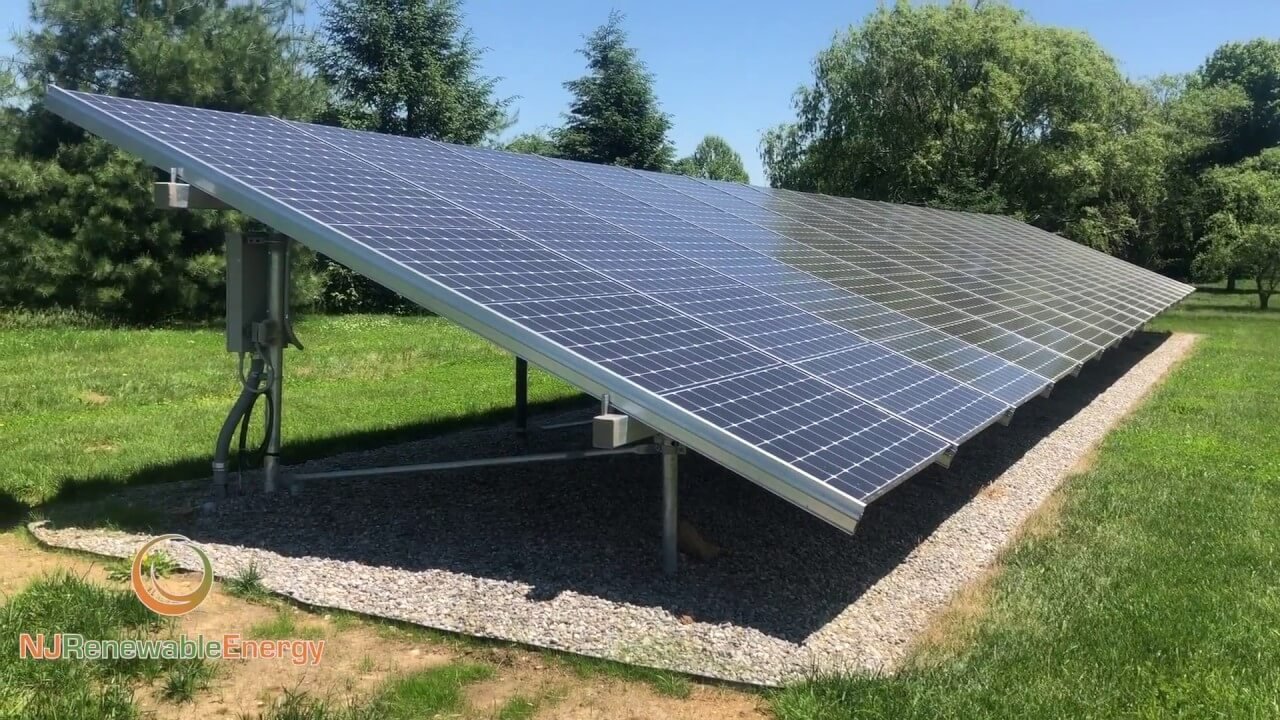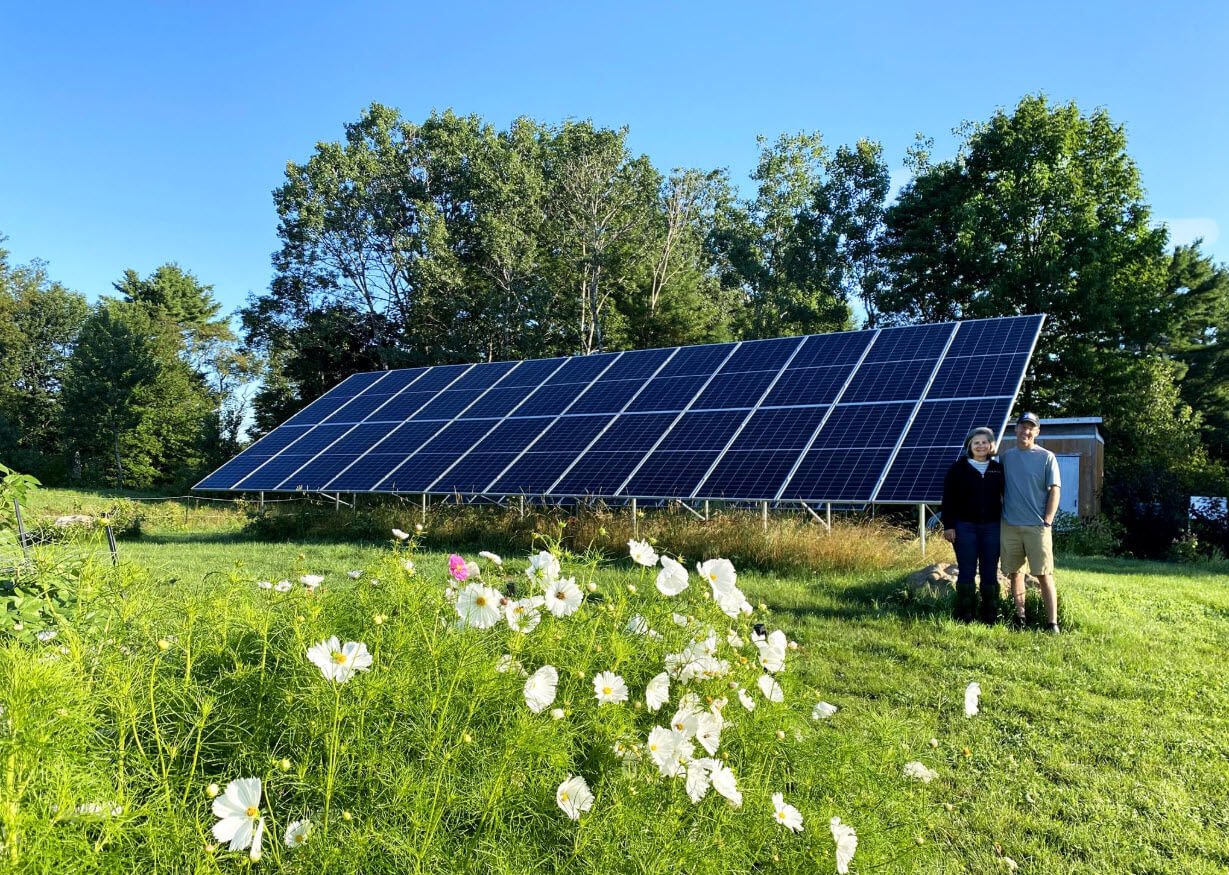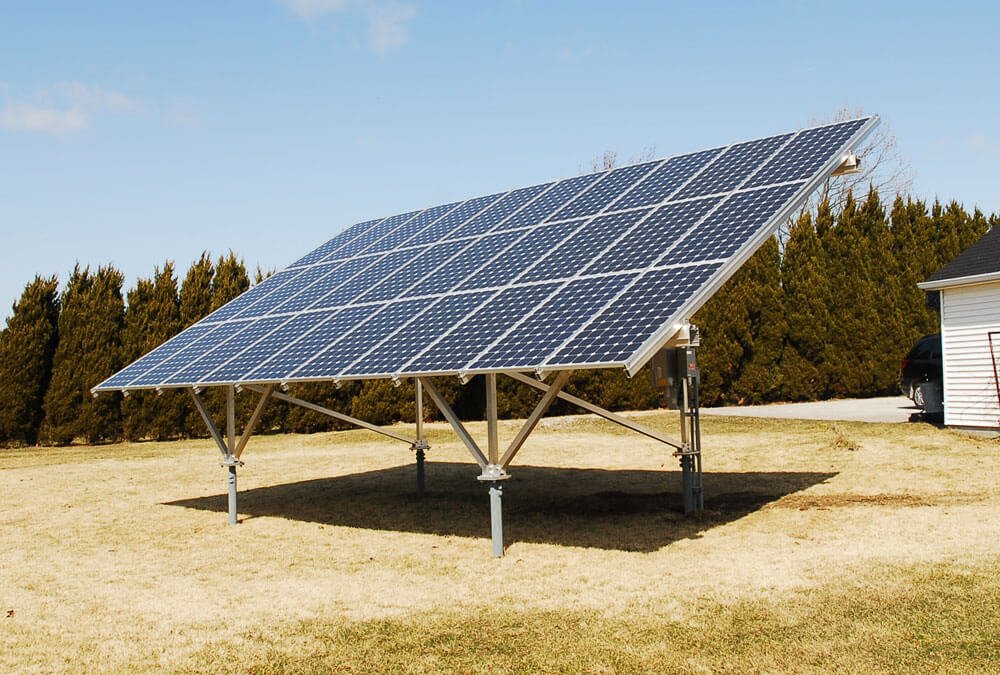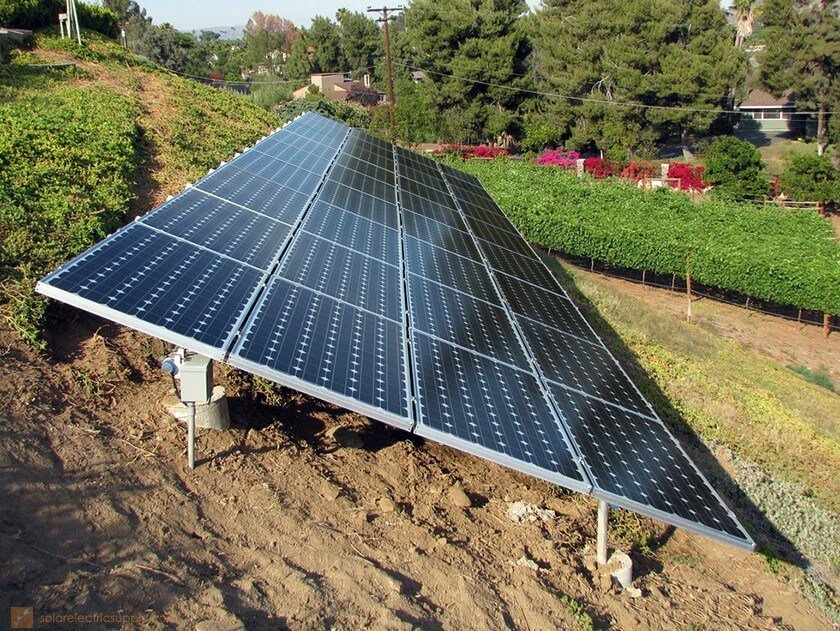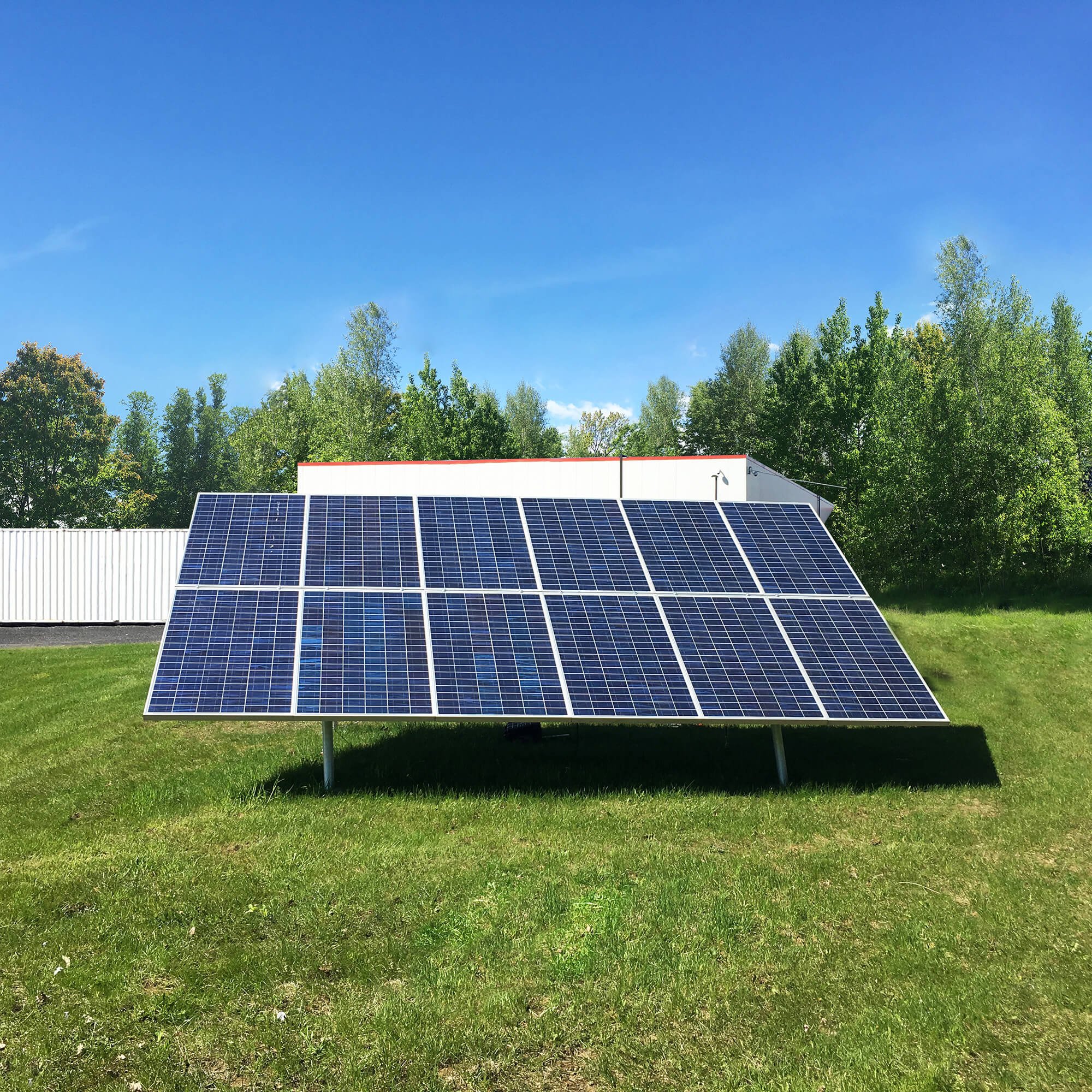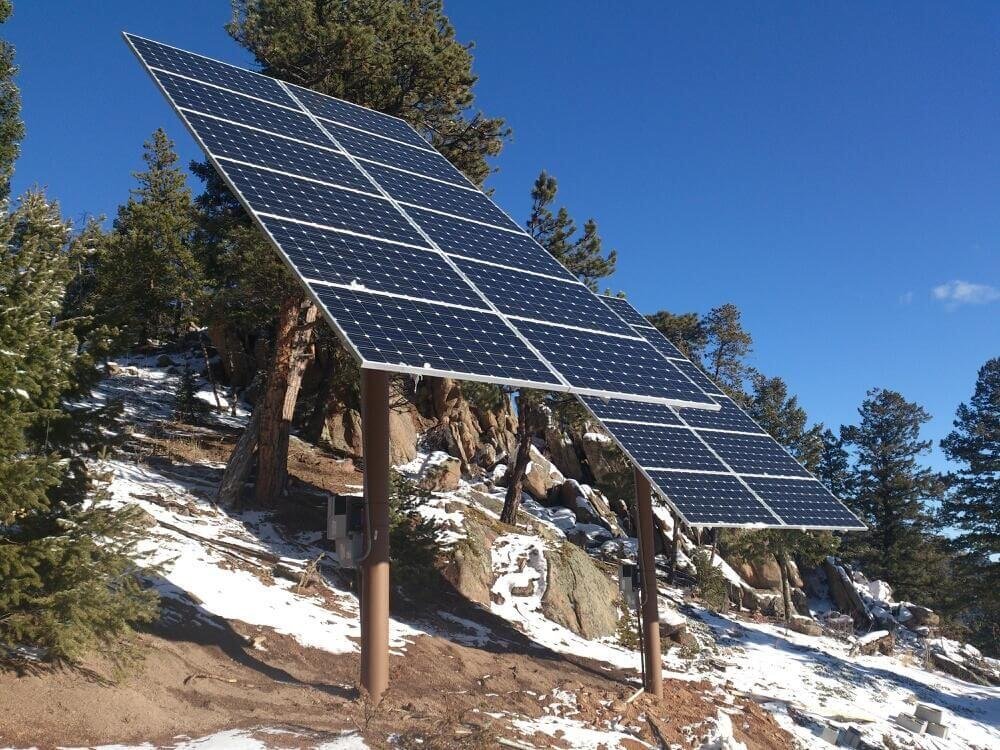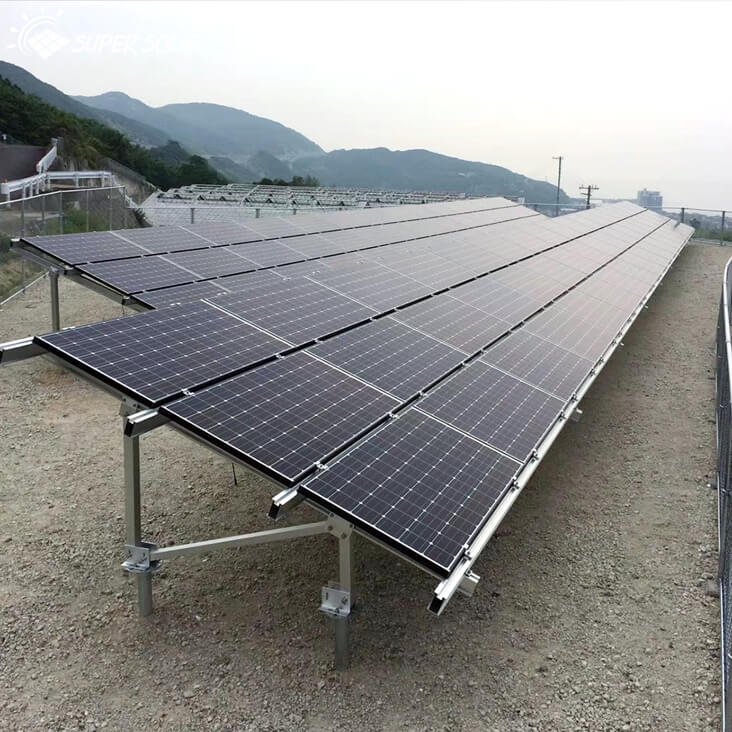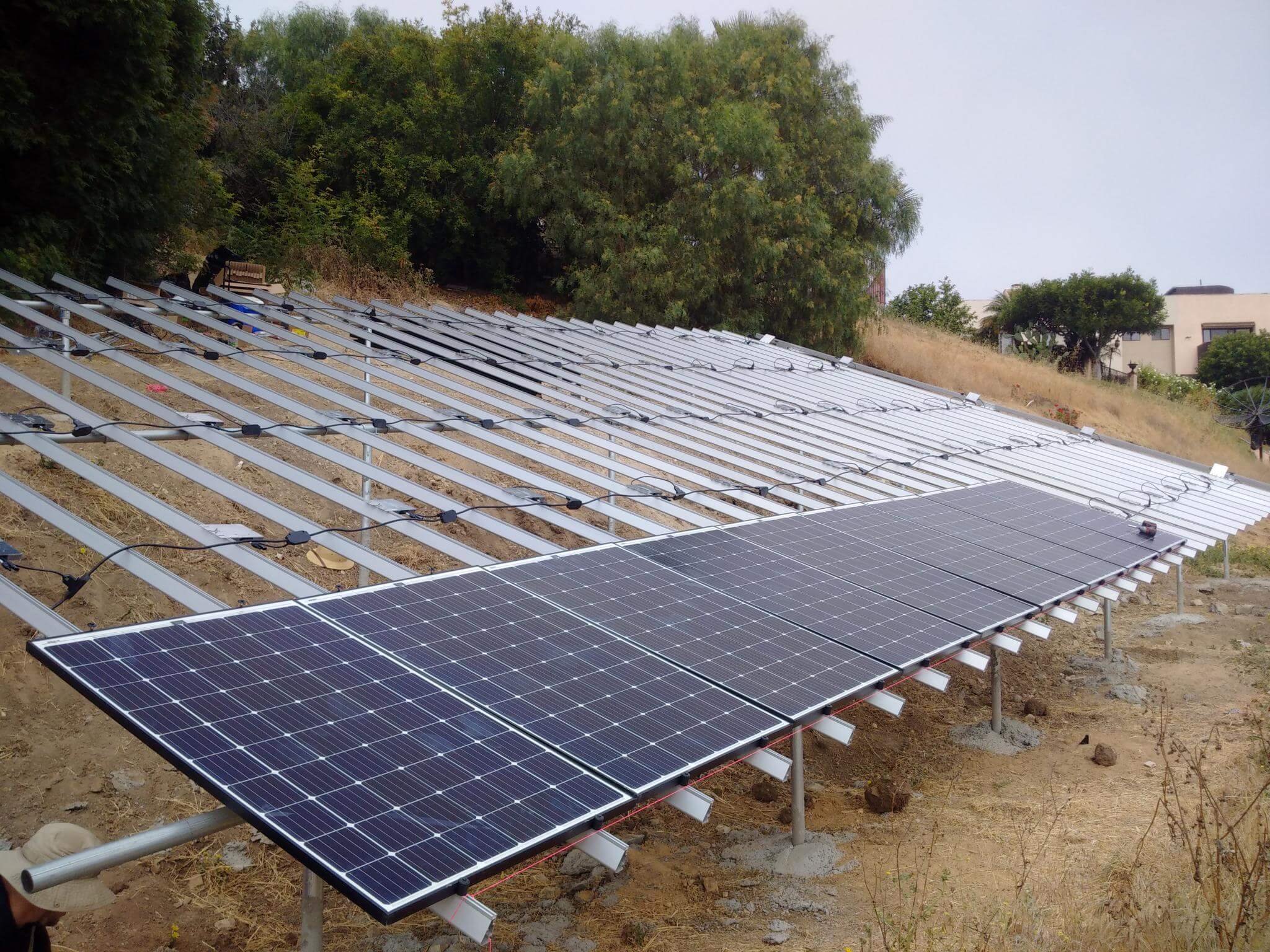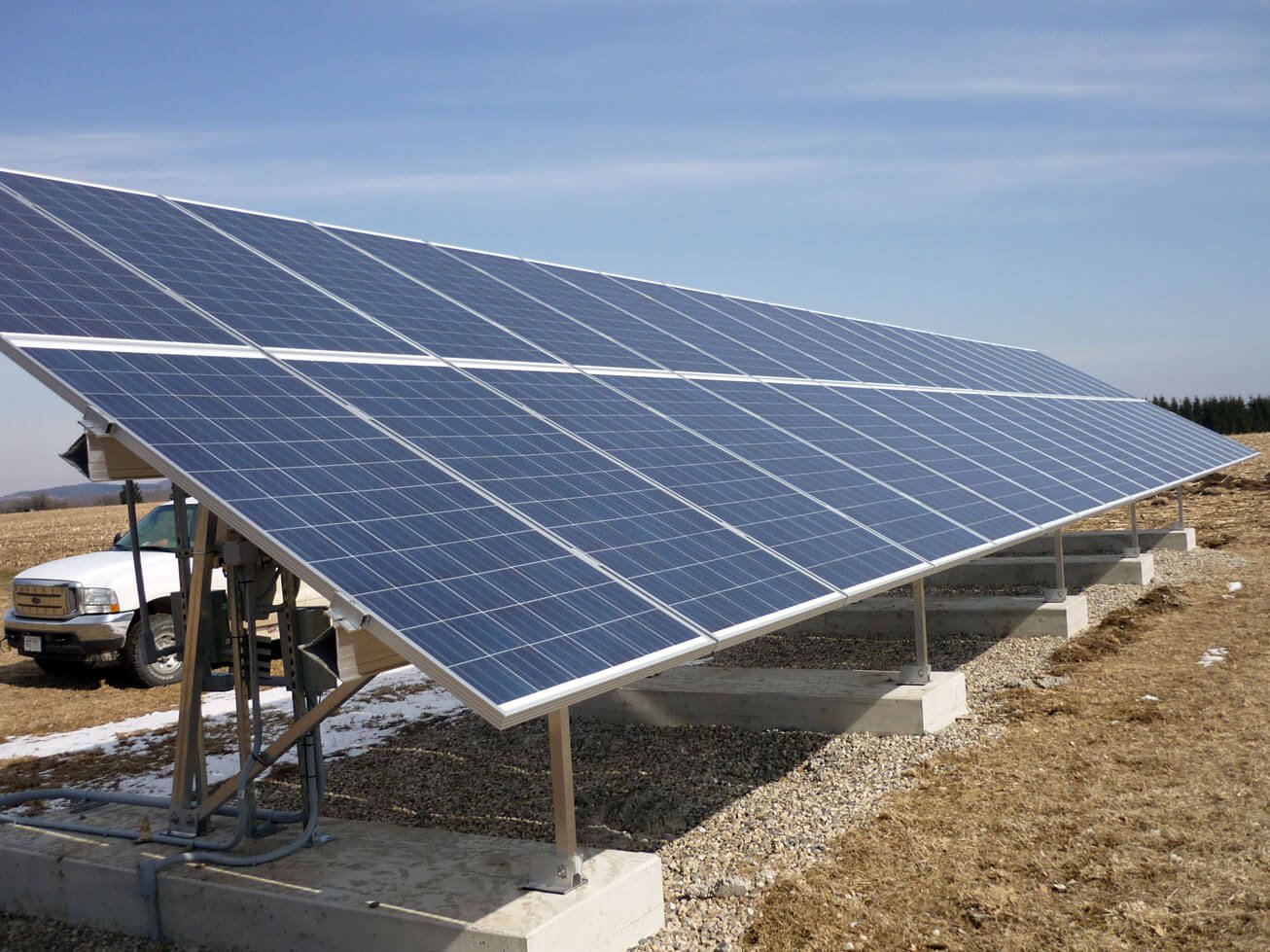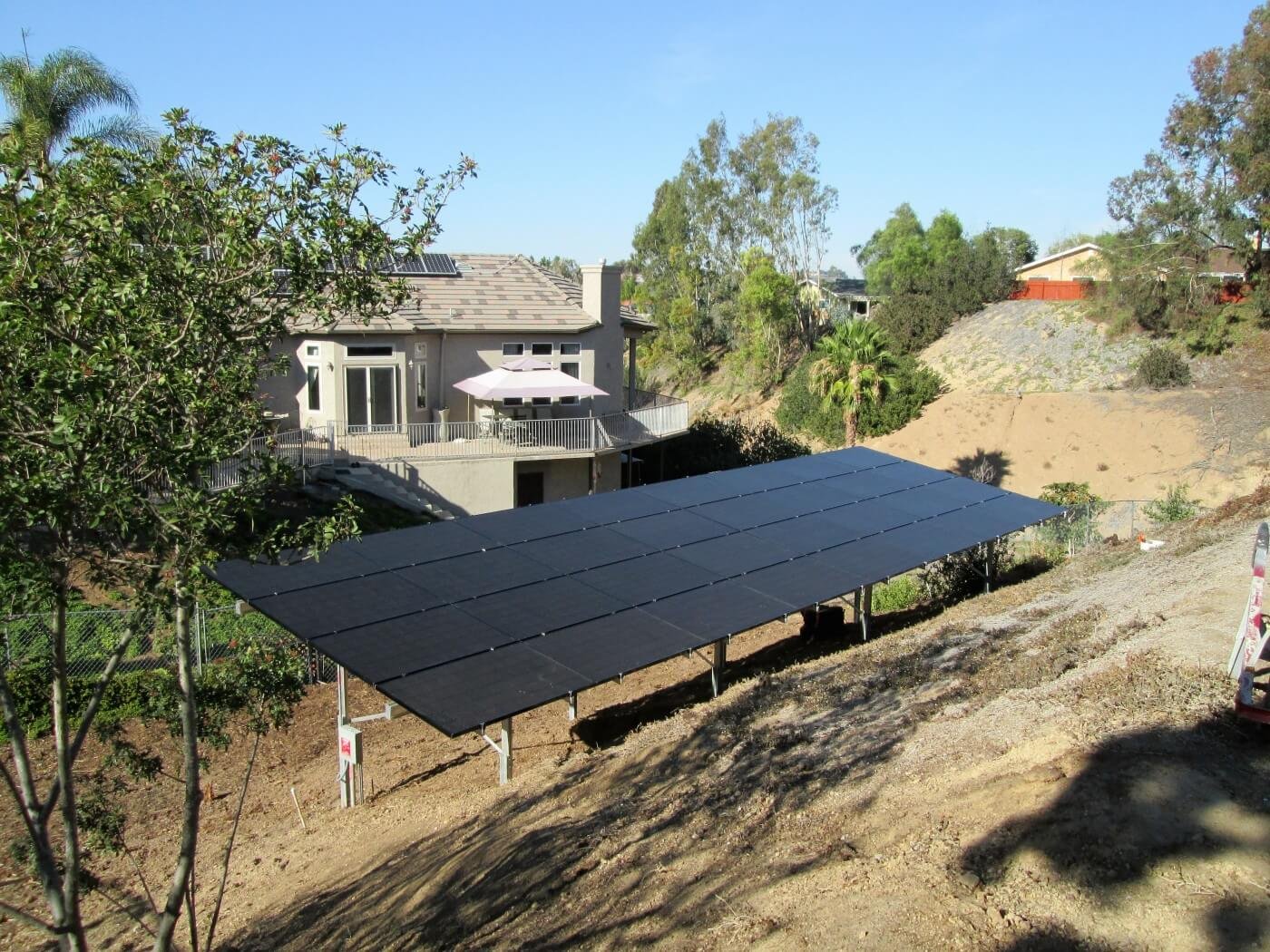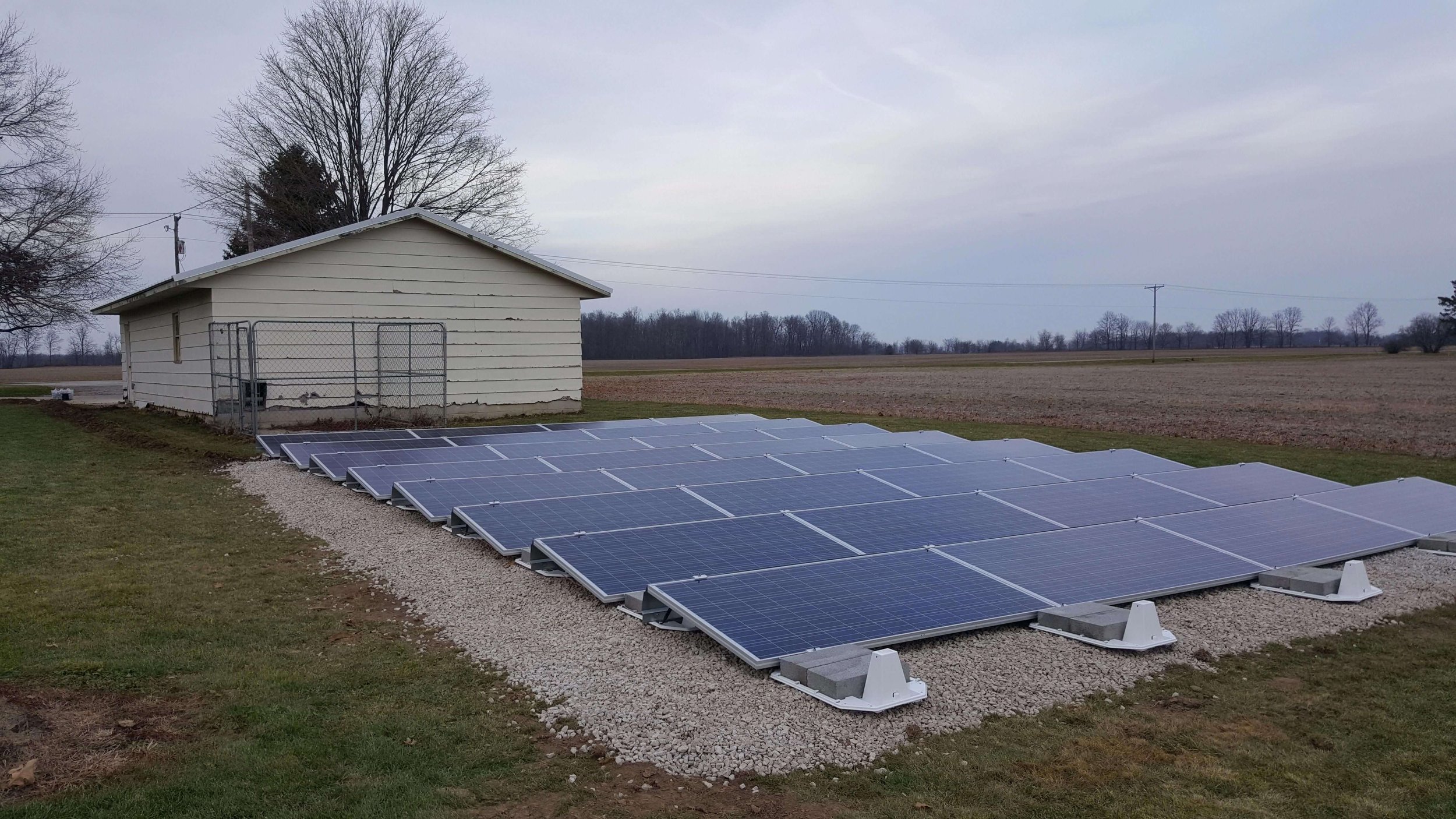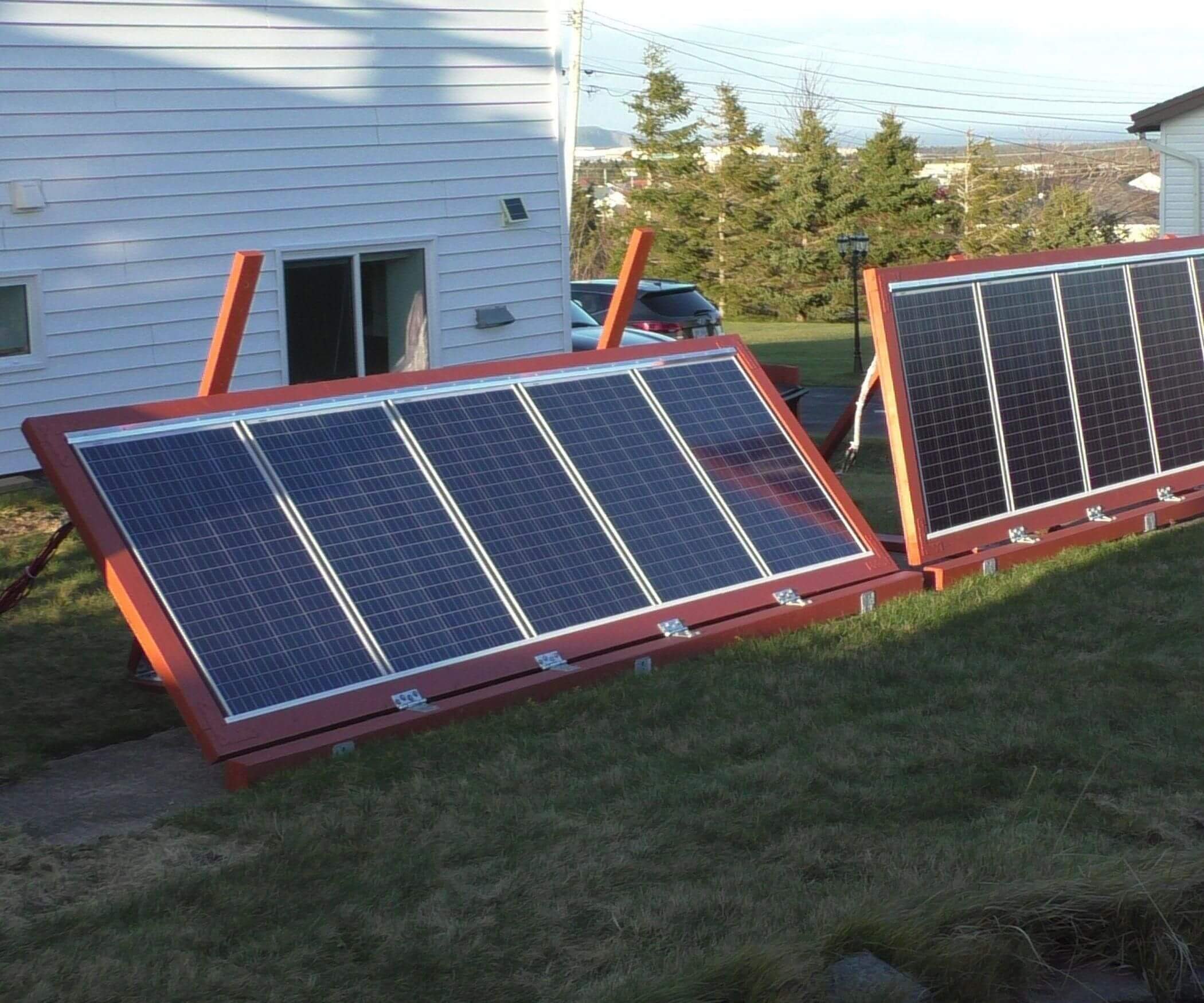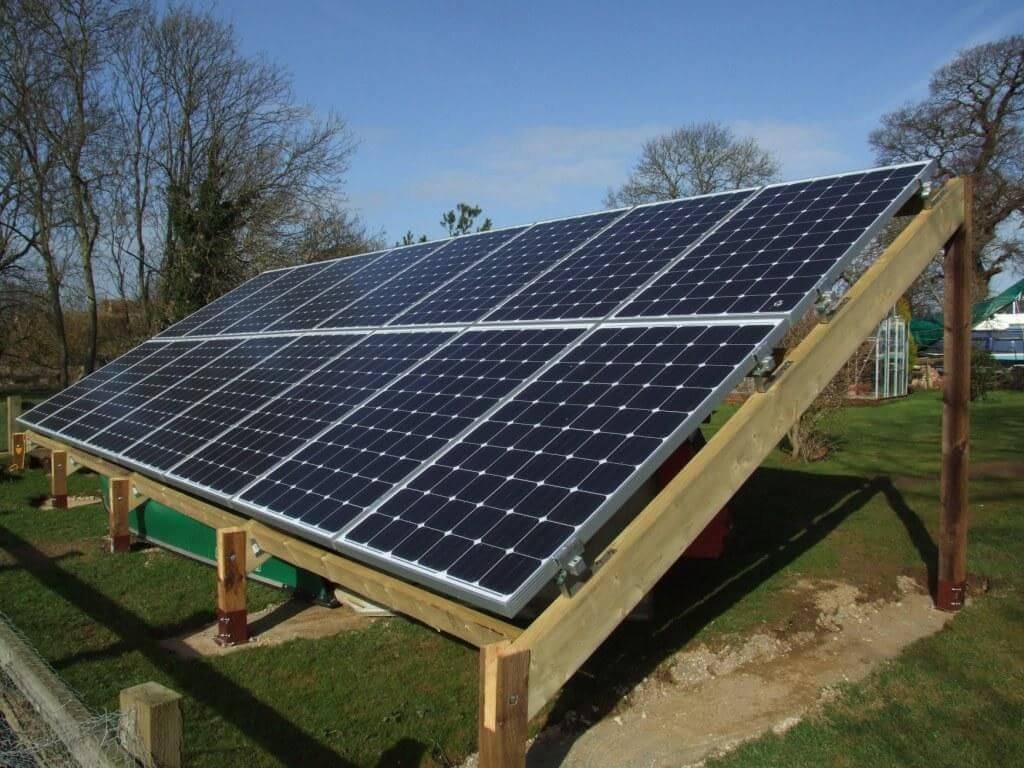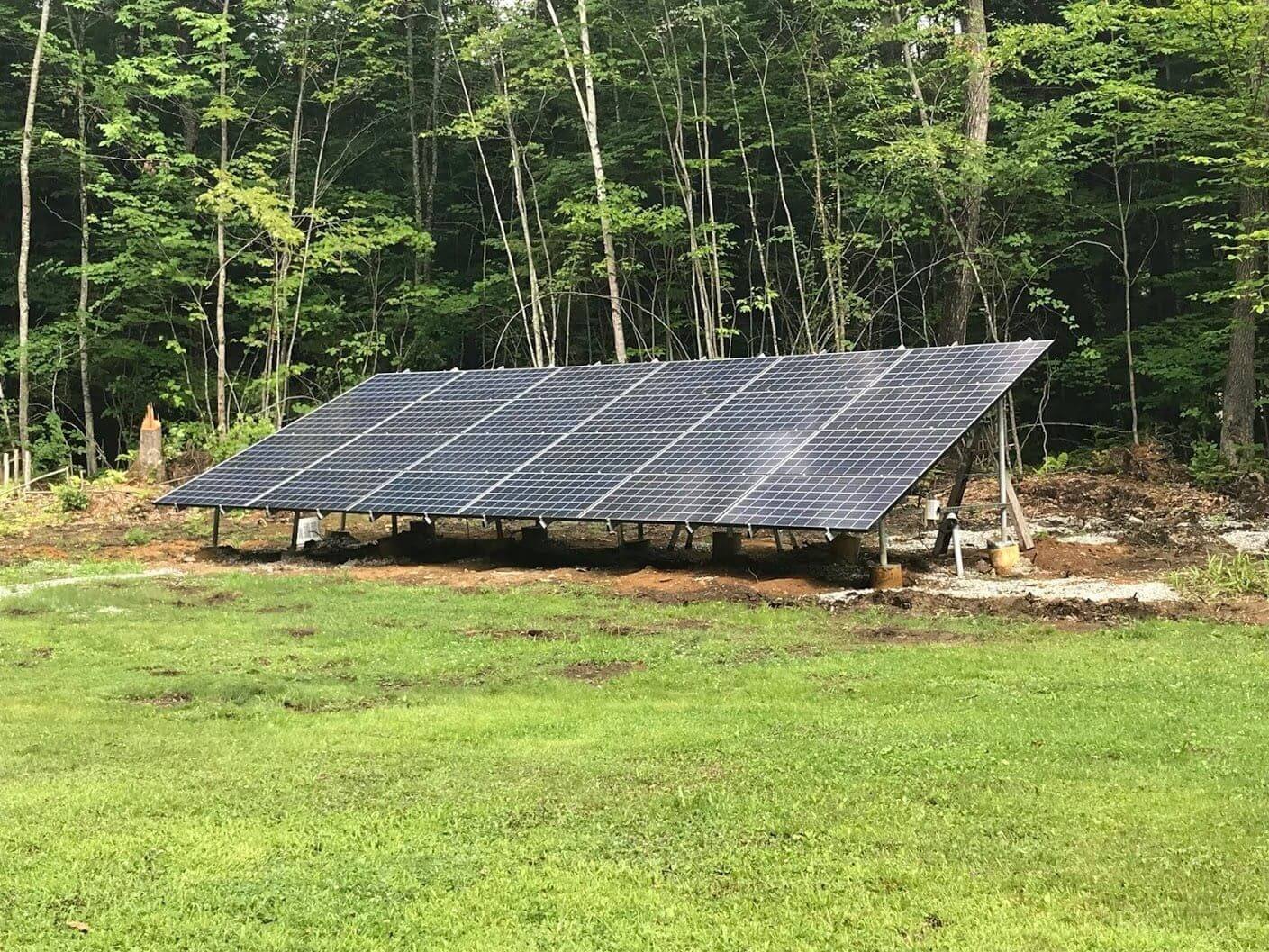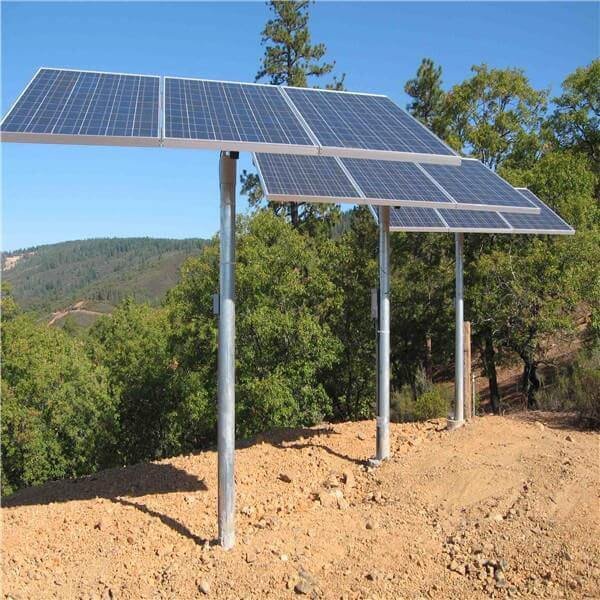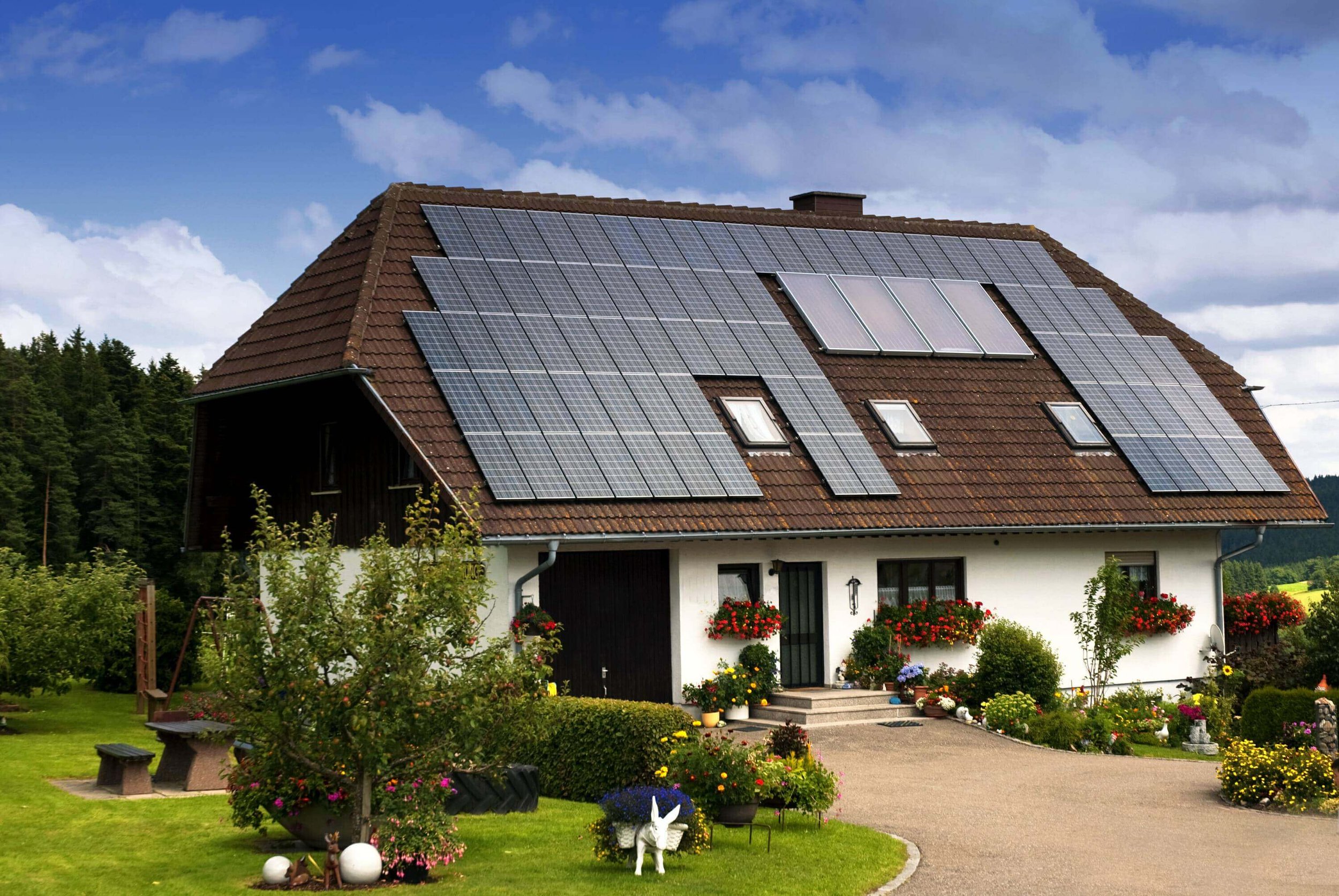Ground-mount solar installation with PPM Solar
Many residential PV systems are ground-mounted solar systems rather than installed on the home's roof. The reasons for doing so can range from not having enough roof space to accommodate solar offset goals - to improved performance and efficiency objectives.
Ground-based solar panels can be placed in a yard or field that receives a suitable amount of sunshine throughout the day. Mounting solar panels on the ground, racks, or atop poles in the yard is commonplace. However, ground-mounted solar panels cost can be higher than roof mount costs primarily due to the expense of racking, longer wire distance, and trenching. Fortunately, these costs qualify for the Federal Tax Credit, thus lowering the out-of-pocket cost by 26% in 2022.
Ground-mounted solar energy systems are prevalent in agricultural and commercial situations. Rural Energy for America Program Renewable Energy Systems are federally funded programs available through the USDA solar grant and qualify for the commercial solar tax credit.
One of the more unique designs we've experienced is the tall, ground mount solar array systems simulating flowers in the garden. Creative ideas, such as a solar carport, solar patio, gazebo, or pergola, continue to emerge.
Although solar panels for residences are more commonly roof-mounted, PPM Solar has extensive ground mount solar panel installation experience. Our team of experts has installed residential, commercial, and utility-grade residential ground-mounted solar panels for more than thirteen years throughout Florida.
Your racking system will meet the highest standards of structural design and installation. We ensure all local regulations are followed and reported per local, state, and federal requirements for you.
Get a free estimate by filling out the form below
What are ground-mounted solar panels?
Solar panels consist of thin slices of factory-made crystallin connected with micro-conductor precision and encased in glass. These slices of crystalline capture our sun's photons and direct the energy through the array of cells and into the system. The system then manages the power for immediate usage or storing energy in batteries, depending on the original design.
Components of solar panels consist of two distinctively different crystalline solar cells, polycrystalline and monocrystalline. In brief, solar panels made with monocrystalline are a newer technology. Thus, they usually have a higher efficiency rating than polycrystalline panels.
Conventional house solar panels come in two standard configurations: 60-cell and 72-cell. The dimensions for each option are: 60-cell panels: 39″ x 66″ (3.25 feet x 5.5 feet) 72-cell panels: 39″ x 77″ (3.25 feet x 6.42 feet). Both sizes are options used for ground-installed solar panels.
Is there any difference between rooftop solar panels?
Solar panel installation costs are dependent upon several factors - such as installation labor, materials, number of panels, quality of peripheral components, plus several other items. As one might conclude, ground-mount solar PV systems are probably more expensive than an average roof mount system.
For example, a yard solar system will require trenching and laying low-gauge wire from the panels to the home or business. On the contrary, roof mounting does not require any ground trenching.
Different types of ground solar systems
Ground installed solar panels can be defined as either Standard Mount or Pole Mount.
Pole Mount is a single-pole affixed to the earth. Standard Mount structure can vary, but it usually is a rigid metal frame secured into the ground.
Each configuration will contain several solar panels clipped into place. The 60-cell and the 72-cell panels are options used to mount solar panels for a yard.
Ground solar mount systems can be even more efficient when equipped with a solar tracking system. These mechanisms have small electrical motors that move the face of all the solar panels from east to west as the sun travels across the sky, ensuring each solar panel faces the sun from dawn to dusk. Although tracking costs more, they are high in energy production.
How many ground-mounted solar panels will you need?
The number of ground solar panels to install in a backyard energy system is determined by calculating the number of kilowatts needed to operate your home or business then calculating the number of panels required to generate that electricity. The proper calculation is known as the Offset of Energy Cost.
For example, according to experts, the average home in Florida uses 1,110 kWh of electrical current. To offset 90% of 1,110 kWh would be 999 kWh.
Armed with this information, an engineer can survey a site, identify all shading, and determine the number of sun hours the property will receive. Such calculations consist of years of atmospheric data, geological information, and identifying obstructions surrounding the proposed solar site.
PPM Solar is skilled in site survey and engineering design for utility-grade, commercial, and home solar installation. Our years of expertise are baked right into our state-of-the-art solar calculation techniques. Contact us today for your professional recommendation.
Is it worth installing ground solar panels, and what are the average costs?
Ordinarily, because of ground trenching and low-gauge wire, a ground-mounted solar energy system costs more than the exact size of an array installed on a rooftop. The difference depends on the distance from the PV array to the home or business. Plus any obstacles along the pathway.
3 steps to installing solar panels
Free Consultation
Our consultant will review your energy consumption and goals to provide you with a proposal in less than one day. Our detailed quote outlines your existing energy costs and provides a flexible solar solution.
Installation
Our highly-trained crew performs your solar installation, typically in one day or less. We make it a fast, easy, and friendly process for you with utmost care.
Perpetual Savings
Your solar investment begins to work immediately. Our solar energy systems operate with minimal maintenance for decades to come using the best industry practices. Every energy system comes with free online monitoring access for life too.
Find out how much you can save going solar!
Installation gallery
Why choose PPM Solar?
We are ready to create a tailored fit solar system designed for your needs. Our sales team, designers, system engineers, office staff, installation crew, and management operate jointly to ensure your satisfaction and that your system always performs at peak capacity.
You can relax knowing your solar energy system for home or business, purchased and installed by PPM Solar, is designed to provide outstanding service for 30 years.
Home owners are going solar
2.5 million solar systems were installed in the US alone in 2019
When financed, we strive to achieve an overall lower energy cost with the solar financing payment, which means homeowners do not experience cost of home ownership increase.
2020 was another record-breaking year as the United States dramatically increased the solar capacity. Total solar capacity in the U.S. is expected to triple again over the next five years.
“
Only The Highest-Quality Equipment
At PPM, we offer only top-tier solar modules, inverters, and mounting structures that have been time-tested while making the latest and greatest technology available. Find out more about specific components that we install by clicking the button below to see our Technical Library.
PPM Solar is the leading Florida solar installation company
Federal tax credit incentives
New solar energy panel systems in Florida are exempt from Florida sales tax, are 100 percent county property tax-exempt, and qualify for the federal solar Investment Tax Credit (ITC).
The ITC provides a 26% tax credit for residential solar panels systems (under Section 25D) and commercial (under Section 48) properties.
The friendly staff of PPM Solar will closely work with you to provide the perfect solar energy panel system, present finance alternatives, and ensure you take advantage of ITC federal programs.
Time is of the essence








